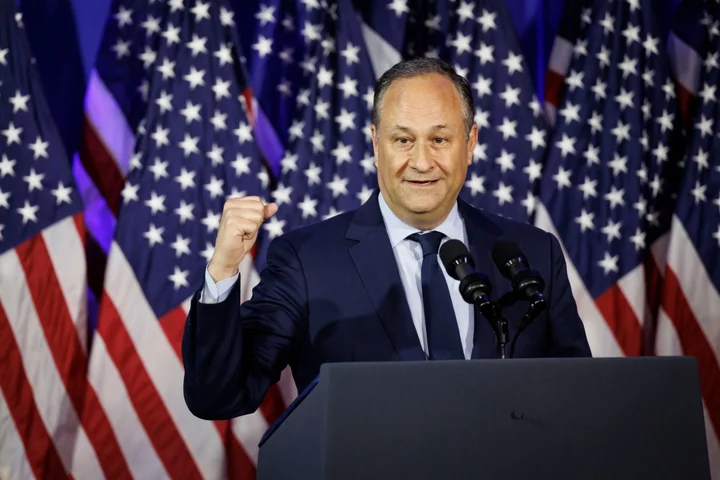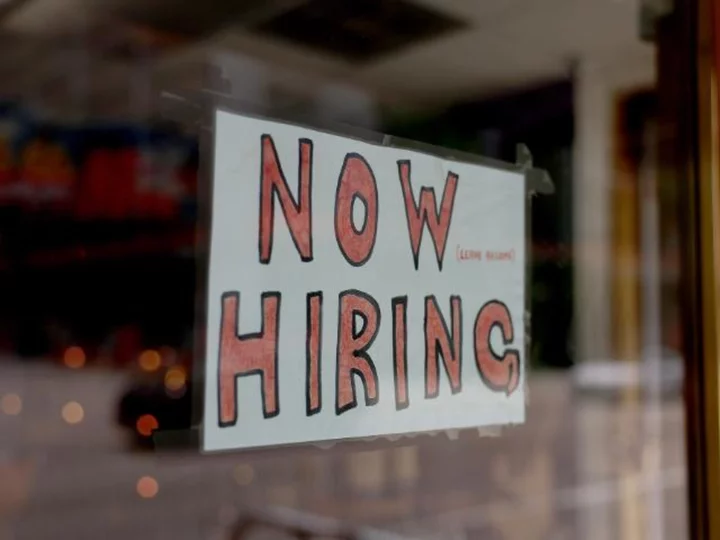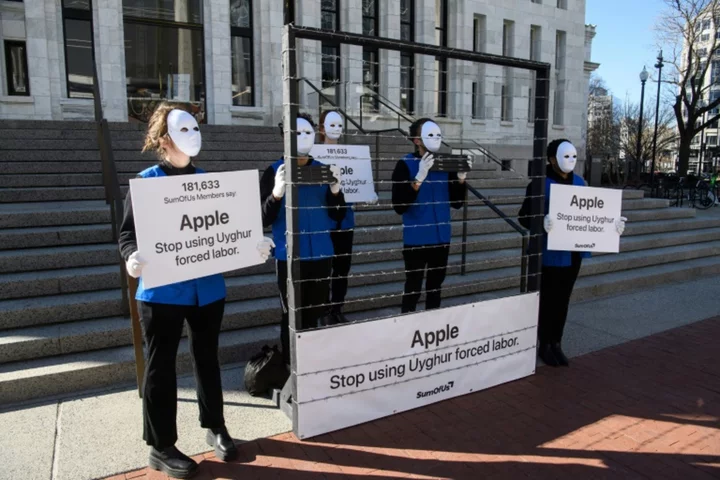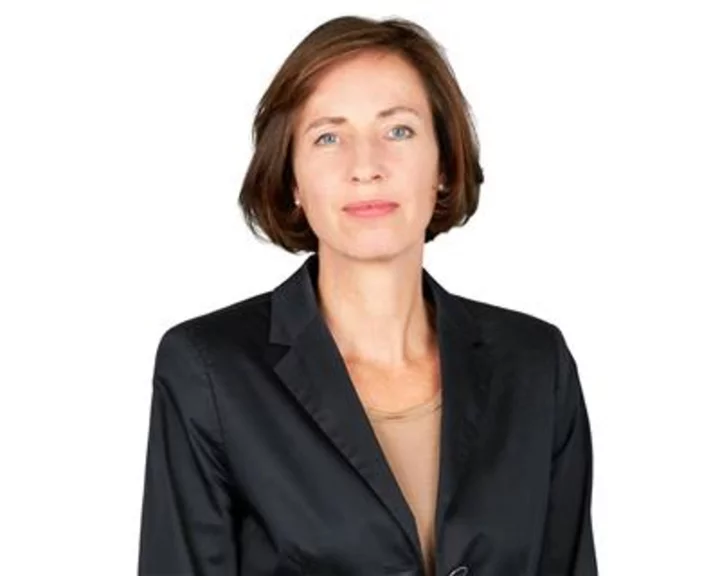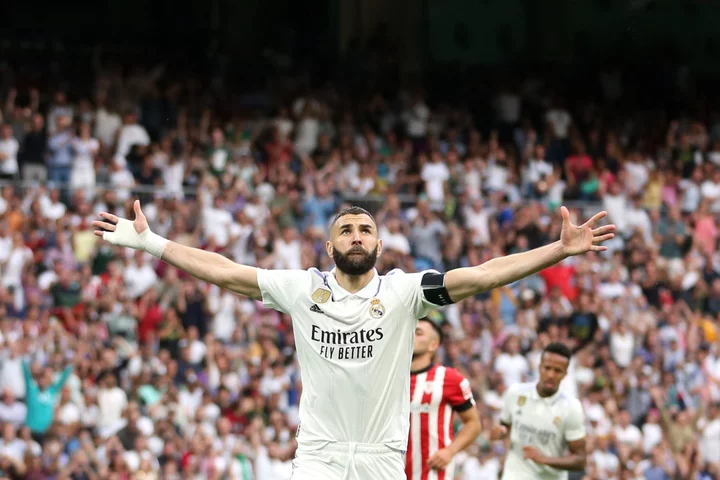Second Gentleman Doug Emhoff took time this week to relive some of his fondest childhood memories: swimming in a lake, playing tennis, bonding with close friends, and sipping fruit punch jokingly called “bug juice.”
Emhoff’s three-hour stop at Cedar Lake Camp, part of a network of Jewish camps in northeastern Pennsylvania, was both a walk down memory lane and a crucial part of his role leading President Joe Biden’s campaign against antisemitism.
Speaking to campers, who ranged from first graders to high schoolers, Emhoff lamented the increasing harassment and violence against Jewish people. He empathized with the children and teenagers, saying it was not a problem he confronted growing up.
“I know it’s horrible, and I know it hurts sometimes, but we got your back,” Emhoff said during his Thursday visit. “One of the reasons I’m doing this work is for you and for young people to feel like I felt — happy, joyful in how to be Jewish.”
Emhoff, 58, has leaned into his identity as the first Jewish spouse of a president or vice president, becoming one of the White House’s most outspoken voices against antisemitic hate, now at its highest level in decades.
The Anti-Defamation League recorded more than 3,600 US incidents of antisemitic harassment, vandalism and assault in 2022, the highest number since it began tracking in 1979.
Emhoff, the husband of Vice President Kamala Harris, participated in the creation of the US’s first-ever strategy to combat antisemitism. The White House in May released the 60-page document, which calls for government agencies and social media companies to step up monitoring of bias, better educate the public on the problem and improve security in Jewish communities.
“We’re going to be graded on how well we do, and I think we’re going to be doing right,” Emhoff said in an interview with Bloomberg News after he addressed the campers.
Emhoff’s advocacy has taken him to places with personal significance, such as Cedar Lake Camp, and during a week-long visit to Europe in January to the town in Poland where his family fled persecution more than a century before.
Earlier: Emhoff Calls for Fighting Anti-Jewish Tropes on Auschwitz Visit
Jewish leaders are pressing the administration to follow through on the antisemitism strategy’s 100 recommendations.
“There’s an uptick in antisemitism. Period. Regardless of why it’s happening, where it’s happening,” Emhoff said in the interview. “I’m focused on that part of it and making sure that we are perpetuating this plan.”
Read more: White House Steps Up Antisemitism Monitoring in New Strategy
Emhoff appeared delighted to return to the place he spent summers from 1975 to 1978, reflecting on an experience that is a rite of passage for many Jewish Americans. He was joined by his sister Jamie, who also attended the camp.
A smiling Emhoff received a rousing ovation from hundreds of campers in an amphitheater in front of a lake. Between talks with campers, he strolled the grounds, reminiscing about seeing the same friends each summer, and making an impromptu stop inside the dining hall.
Emhoff said his experiences at the camp, in particular swimming in the lake, were formative in overcoming his childhood shyness and set him on the path to becoming a lawyer and eventually second gentleman. He said the lake seemed like an “ocean” when he was younger.
“That cold dark lake was kind of like my nemesis, it took a minute to really face those fears of getting in the water,” Emhoff said. “That was really the turning point for me here, just getting that confidence.”

